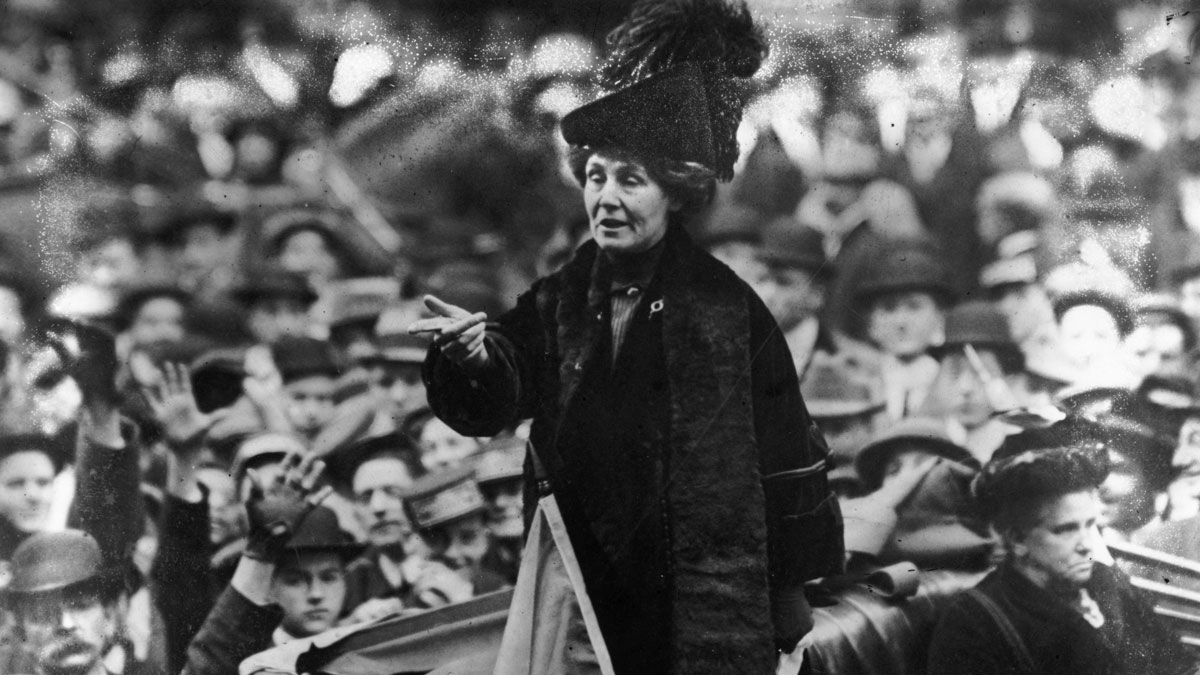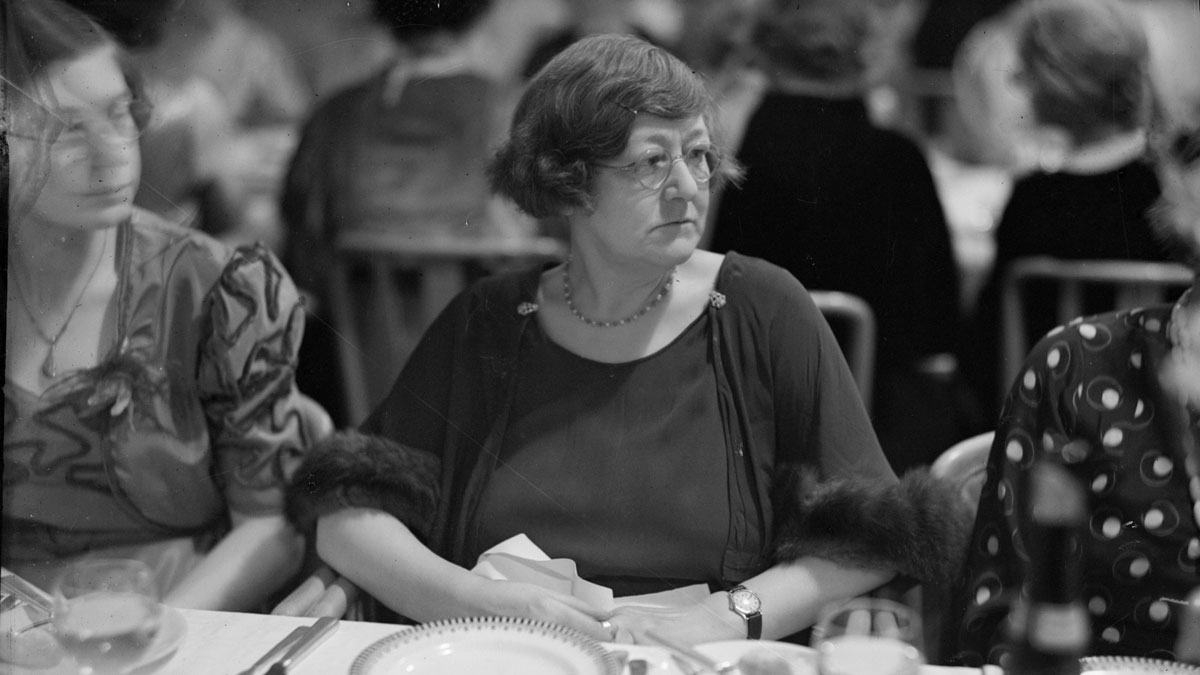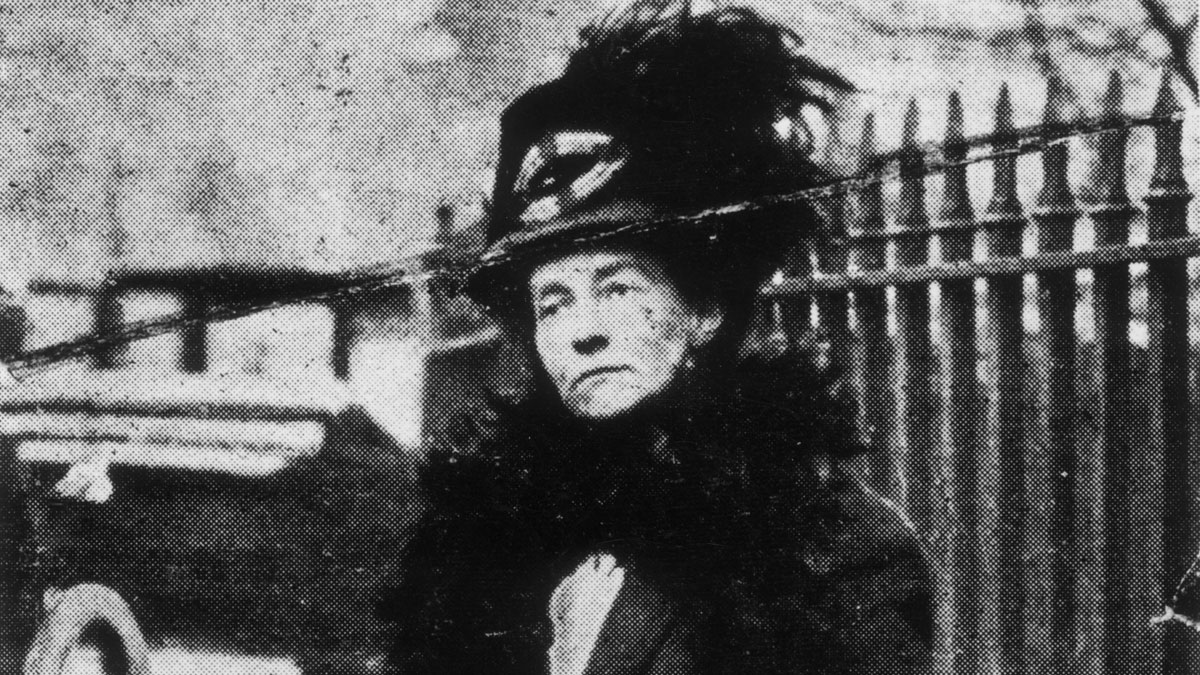The real suffragettes: who were Emmeline Pankhurst, Emily Davison and Edith New?
Thousands take to the streets to honour the women who won the vote 100 years ago

A free daily email with the biggest news stories of the day – and the best features from TheWeek.com
You are now subscribed
Your newsletter sign-up was successful
Tens of thousands of women took to the streets across the UK over the weekend to mark 100 years since women got the vote, and to honour those who made it happen.
Marches in London, Cardiff, Edinburgh and Belfast saw women carry banners and don red, white and green period costumes, including sashes styled on those worn by suffragettes during their fight for the vote in the run-up to the First World War.
The organisers said their intention was to form “a living portrait of women in the 21st century and a visual expression of equality, strength and cultural representation”.
The Week
Escape your echo chamber. Get the facts behind the news, plus analysis from multiple perspectives.

Sign up for The Week's Free Newsletters
From our morning news briefing to a weekly Good News Newsletter, get the best of The Week delivered directly to your inbox.
From our morning news briefing to a weekly Good News Newsletter, get the best of The Week delivered directly to your inbox.
The events “were both a commemoration of the mass marches and demonstrations of the suffragettes’ campaign, a celebration of their ultimate victory, and a reminder that there is still more to do at a time when women’s rights in Northern Ireland are a burning political issue”, The Guardian reports.
The procession in Belfast was undoubtedly the most overtly political, and was dominated by a call for abortion law reform, after Ireland voted to relax its laws in a referendum last month.
Sunday's march in London “felt like both a celebration and call to arms”, agreed Sky News’ Katerina Vittozzi.
“Yes, there were plenty of banners to mark the 100 years since some women won the right to vote. But there were dozens that were calling for equal pay, 50/50 representation in parliament and one that simply read ‘Power to the Future’,” she said.
A free daily email with the biggest news stories of the day – and the best features from TheWeek.com
But who were the original suffragettes and what exactly did they achieve?
Emmeline Pankhurst

Emmeline was the mother of British suffrage and is considered to be one of the most influential women in the country's history. She founded the Women's Franchise League in Manchester in 1889, which campaigned to allow married women to vote in local elections. More than a decade later she went on to form the radical Women's Social and Political Union (WSPU) and led the suffragettes with the rallying cry of "deeds not words".
She was a controversial figure and her group used violent tactics, including bombing and arson, to protest against political and social inequality. Like many suffragettes, Pankhurst and her daughters were arrested on numerous occasions and spent long periods in prison. There they went on hunger strike, which resulted in violent force-feeding by prison guards. Emmeline eventually called for an end to the group's militantism at the start of the First World War.
She died in 1928, aged 69 and just two weeks shy of the government's decision to finally extend the vote to all women over 21 years. After her death, the New York Herald Tribune called her "the most remarkable political and social agitator of the twentieth century and the supreme protagonist of the campaign for the electoral enfranchisement of women".
Edith New

Edith was one of the more militant suffragettes, engaging in property destruction and vandalism. In an attempt to create a diversion that would allow fellow suffragette Flora Drummond to break in and disrupt a cabinet meeting in January 1908, Edith and Olivia Smith chained themselves to the railings outside 10 Downing Street shouting "votes for women!" Drummond was arrested, but it was the first of many attempts to force the government to listen to their demands.
Later that year, Edith returned to Westminster to protest against police brutality, smashing the windows of Number 10 with rocks. "It was the first time the suffragettes had smashed windows in the name of the cause and the perpetrators were unrepentant," says BBC History magazine. "It will be a bomb next time," they said afterwards.
Emily Davison

"In a movement defined by acts of daring, Davison's bravery was extraordinary", says The Guardian's Kira Cochrane. On 4 June 1913 Emily threw herself in front of the king's horse at the Epsom Derby. The jockey and horse survived, but Davison suffered a fractured skull and internal bleeding and died without regaining consciousness four days later.
There has long been speculation about her intensions. Emily was carrying suffragette flags and some have argued that she simply wanted to tie one to the horse's reins. A return train ticket home and a recently booked holiday also suggest she didn't travel to Epson with the intention of killing herself. "But there's no doubt she was prepared to make dangerous sacrifices for women's rights," says Cochrane. Thousands of suffragettes dressed in purple, green and white lined her funeral procession and the programme declared simply: "She died for women."